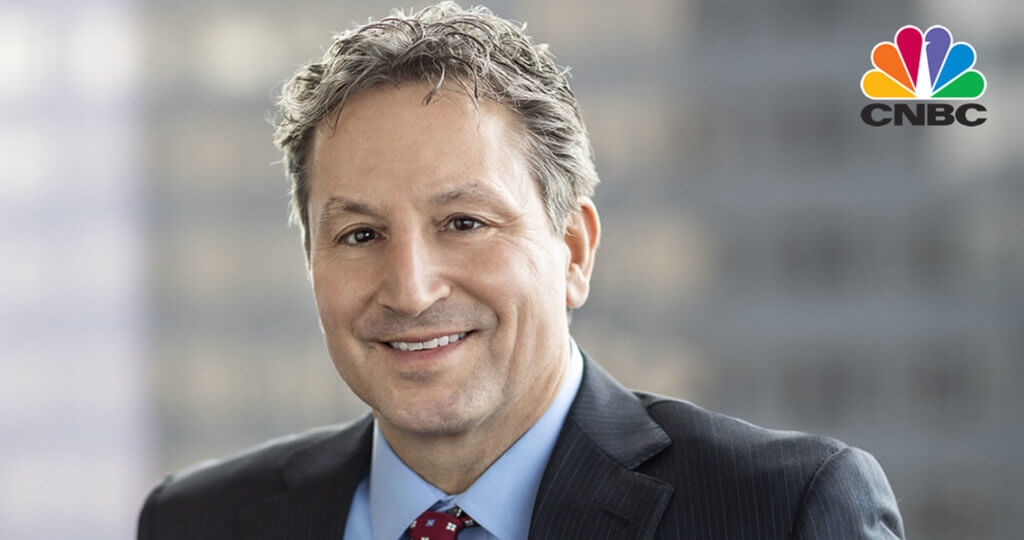Oakmark International Fund – Investor Class
Average Annual Total Returns 06/30/22
Since Inception 09/30/92 8.28%
10-year 5.92%
5-year -0.42%
1-year -22.73%
3-month -11.77%
Gross Expense Ratio: 1.07%
Net Expense Ratio: 1.05%
Expense ratios are based on estimated amounts for the current fiscal year; actual expenses may vary.
The net expense ratio reflects a contractual advisory fee waiver agreement through January 27, 2023.
Past performance is no guarantee of future results. The performance data quoted represents past performance. Current performance may be lower or higher than the performance data quoted. The investment return and principal value vary so that an investor’s shares when redeemed may be worth more or less than the original cost. The To obtain the most recent month-end performance data, view it here.
The Oakmark International Fund returned -11.8% for the quarter ended June 30, compared to its benchmark, the MSCI World ex U.S. Index (Net), which returned -14.7% for the same period. In addition, the Fund has returned an average of 8.3% per year since its inception in September 1992, outperforming the MSCI World ex U.S. Index (Net), which has averaged 5.5% per year over the same period.
It was a difficult quarter for equity markets as inflation remained at elevated levels, which caused central banks around the world to raise—or express their intentions to soon raise—interest rates. This situation was made even more challenging by continued lockdowns in China (and the negative impact this had on global supply chains and economic growth in China) and the continued hostilities in Ukraine. Despite this difficult macroeconomic backdrop, our portfolio companies have mostly continued to report robust operating results to date. Although some consumer discretionary categories (e.g., apparel) are exhibiting signs of weakening demand, overall the business environment remains favorable. However, we remain vigilant for signs of noticeable weaknesses to business conditions. Despite the uncertain macro environment, we are enthusiastic about the portfolio’s mid- to long-term return potential. Unlike the U.S. market, international valuations entered the year in line or below long-term averages, and given the combination of significant share price declines, along with underlying earnings growth, valuations are very low compared to historical averages. Thus, we continue to believe most of our holdings’ prices already reflect a significant slowdown or outright recession.
The Oakmark International Fund has a near 30-year trading history. Every day, we track the portfolio’s discount to intrinsic value. For example, if the portfolio is trading at 65%, then the portfolio is trading at 65% of our estimate of its intrinsic value. (The lower this value, the higher we would expect the rate of future returns to be.) Over our nearly 30-year history, market peaks have tended to result in discounts to intrinsic values in the 75-80% range while market troughs usually resulted in valuations in the 45% range. The two exceptions to this occurred in March 2009 (the global financial crisis) and March 2020 (the Covid-19 pandemic) when the portfolio’s discount to its intrinsic value reached 35%. As of June 30, the portfolio is trading at approximately 50% of our estimate of intrinsic value. We believe this is an attractive valuation level that should generate attractive returns over the mid- to long-term. In uncertain environments, the importance of strong management teams, healthy balance sheets and competitively advantaged business models are especially important, and these factors have always been a core emphasis of our research process. We believe the portfolio is well-positioned to manage this volatile environment, so during the quarter, the Fund’s portfolio managers added to their personal investments in the Fund.
Further details on quarterly performance are below.
Prosus (Netherlands), a global internet and technology company, was a top contributor to the Fund’s performance for the quarter. Prosus outperformed as a result of strong relative performance from its major holding, Tencent. Tencent, as well as other Chinese internet companies, performed well during the quarter as the Chinese government made several announcements supporting the internet sector. There is a growing narrative that the worst of the regulatory pressures on the Chinese internet are in the past and that, over time, the industry will grow at a more normal pace. In addition, at the end of the quarter, Prosus’ share price increased, following the announcement that the company is planning to sell part of its $134 billion stake in Tencent. Prosus will conduct an open-ended and unlimited program to sell its Tencent shares and use those proceeds to repurchase its own shares until the discount narrows to a level that is satisfactory to management. We welcome this change as it takes advantage of the massive discount in Prosus shares relative to its NAV.
Credit Suisse (Switzerland), a leading global financial services company, was a top detractor for the quarter, following the company’s first-quarter earnings report, which showed soft headline figures and numerous one-time items. The results also reflected massive de-risking as the company continues to reallocate capital from the lower return/higher risk investment bank into its higher return/lower risk wealth management divisions. When coupled with the internal managerial changes, we believe underperformance will continue for the fiscal year 2022, but should provide a path to a cleaner year in 2023. With regards to the management changes, the departures of long-time CFO David Mathers and General Counsel Romeo Cerutti were expected. CEO Thomas Gottstein indicated that Mathers would stay on in the role until a replacement was found and a subsequent general counsel (Markus Diethelm, formerly of UBS) was already secured. Credit Suisse also took CHF 650 million in litigation expenses in the first quarter, but is looking to move past its legacy liabilities. Overall, we find that Credit Suisse possesses a high-quality franchise with a solid balance sheet that positions the company to generate significant free capital as conditions normalize. At its current price, we find that Credit Suisse is trading at a large discount to our perception of its intrinsic value.
During the quarter, we sold two positions that were originally received as spin-offs from portfolio companies. Vitesco Technologies Group (Germany), a spin-off from Continental, and Iveco Group (Italy), a spin-off from CNH Industrial, were sold in favor of names that, in our view, offer more upside potential. We also sold our position in Bank Mandiri (Indonesia) as its share price approached our estimate of intrinsic value.
We initiated the below position during the quarter:
- French consumer discretionary company Kering (France) is one of the world’s largest luxury groups. Its brands include Gucci, Alexander McQueen, Balenciaga, Bottega Veneta and Saint Laurent, among others. We like that Kering is a personal luxury goods company in a growth market and believe that the industry can achieve mid-single-digit compounded revenue growth in the wake of the Covid-19 pandemic. In our view, prominent luxury brands (such as Gucci) benefit from significant scale advantages that only increase as the companies grow. Although Gucci’s momentum has stalled, it remains a growth brand with revenue improving over 10% from the first quarter of 2021 to the first quarter of 2022, while key metrics, such as store productivity and brand resale value, have remained strong. In addition, we appreciate Kering’s excellent track record of diversifying its exposure to Gucci and leveraging its scale for the benefit of its smaller brands. Overall, we find that the company trades at a compelling valuation given its unusually positive risk/reward proposition and believe that it is a structurally growing, high-quality luxury asset with an impressive management track record.
Geographically, we ended the quarter with approximately 85% of our holdings in Europe and the U.K., 10% in Asia, and 2% in Australasia. The remaining positions are 2% in North America (Canada) and 1% in Latin America (Mexico).
We thank you for your continued support.
The securities mentioned above comprise the following percentages of the Oakmark International Fund’s total net assets as of 06/30/2022: Bank Mandiri 0%, CNH Industrial 1.8%, Continental 2.3%, Credit Suisse Group 2.3%, Iveco Group 0%, Kering 1.0%, Prosus 3.8%, Tencent 0% and Vitesco Technologies Group 0%. Portfolio holdings are subject to change without notice and are not intended as recommendations of individual stocks.
The MSCI World ex U.S. Index (Net) is a free float-adjusted, market capitalization-weighted index that is designed to measure international developed market equity performance, excluding the U.S. The index covers approximately 85% of the free float-adjusted market capitalization in each country. This benchmark calculates reinvested dividends net of withholding taxes. This index is unmanaged and investors cannot invest directly in this index.
The Fund’s portfolio tends to be invested in a relatively small number of stocks. As a result, the appreciation or depreciation of any one security held by the Fund will have a greater impact on the Fund’s net asset value than it would if the Fund invested in a larger number of securities. Although that strategy has the potential to generate attractive returns over time, it also increases the Fund’s volatility.
Investing in foreign securities presents risks that in some ways may be greater than U.S. investments. Those risks include: currency fluctuation; different regulation, accounting standards, trading practices and levels of available information; generally higher transaction costs; and political risks.
The information, data, analyses, and opinions presented herein (including current investment themes, the portfolio managers’ research and investment process, and portfolio characteristics) are for informational purposes only and represent the investments and views of the portfolio managers and Harris Associates L.P. as of the date written and are subject to change and may change based on market and other conditions and without notice. This content is not a recommendation of or an offer to buy or sell a security and is not warranted to be correct, complete or accurate.
Certain comments herein are based on current expectations and are considered “forward-looking statements”. These forward looking statements reflect assumptions and analyses made by the portfolio managers and Harris Associates L.P. based on their experience and perception of historical trends, current conditions, expected future developments, and other factors they believe are relevant. Actual future results are subject to a number of investment and other risks and may prove to be different from expectations. Readers are cautioned not to place undue reliance on the forward-looking statements.
All information provided is as of 06/30/2022 unless otherwise specified.




